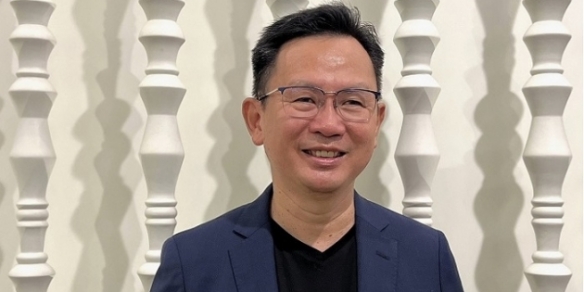Digerati50: Itching to take on the big boys
By Karamjit Singh January 12, 2015
Digital News Asia (DNA) continues a weekly series that profiles the top 50 influencers, movers and shakers who are helping shape Malaysia’s Digital Economy. These articles are from Digerati50, a special print publication released in January 2014. For information on customised reprints of Digerati50, email [email protected].
- Mimos CEO wants Malaysian-developed technology to take on the world
- Has built an ‘Open Innovation Platform’ to accelerate and strengthen ecosystem

“IF I can’t translate what we do to making money, then there is no point in me being around.” Those who know him will not be surprised at the blunt assessment Abdul Wahab Abdullah (pic above) makes of his role as president and chief executive officer of Mimos Bhd, Malaysia’s national research and development (R&D) centre for ICT.
Fortunately, seven years into his tenure, Wahab is delivering. Mimos today delivers almost 95% of the monetisation that all the 18 agencies under the Ministry of Science, Technology and Innovation make.
The definition of monetisation at Mimos is when the private sector makes money from the technologies that Mimos has developed.
It is not just the recipients of Mimos which are grateful for the technology it develops, but its own researchers too, who in 2012 received over RM10 million (US$2.8 million) in bonuses from the revenue that their products generated in the market.
“A portion of the money earned by our researchers goes back to them, this way. That is how we retain our talent,” says Wahab.
There was a time, before he came in, that Mimos was so poorly regarded that it could not attract any top quality talent to join it but Wahab, who was previously senior director of Wireless Communication R&D at Motorola Asia Pacific, slowly began to infuse Mimos with talent who had extensive multinational experience.
This experience in those he brought in was important to Wahab as it came with the know-how of building technology platforms and intellectual property (IP) that allowed multinationals to scale by re-using the platform globally, with minor customisations to suit different customer needs.
Wahab wants to do the same for Malaysia and therefore allow technology platforms Mimos develops, to be used by local companies to solve customer problems.
“Instead of them making 10% to 20% margins being resellers for multinational-owned technology, this way they can make 40% margins by building their own software solution on our platform,” he says.
Malaysia therefore needs technology for which it owns the IP, which it can then take out to the world.
He sees public research institutes such as Mimos playing a critical role here, especially in galvanising industry and university input into a fusion between market needs (provided by industry) and technology push (provided by the universities).
Mimos has built what Wahab describes as an Open Innovation Platform “to accelerate and strengthen the ecosystem.”
One key strategy in strengthening the ecosystem is the creation in January 2014 of Frontier Innovation Sdn Bhd, Mimos’ own commercial arm.
“The idea here is that we will inject our technology into large local tech companies in return for equity. That’s our focus for 2014,” says Wahab.
His idea is that this injection of technology will help the large local tech companies to expand beyond Malaysia.
And, when they get stronger, they will then outsource some work to local tech SMEs (small and medium enterprises).
“We want them to leapfrog,” says Wahab, who strongly feels his main job is to develop local indigenous technology that can go global.
Surprisingly, Wahab feels Mimos is still not moving fast enough. “I wish I was younger,” he muses, wistfully. “We need to be forceful and focused to make things happen.”
Key among what he wants to make happen is to see the Government start adopting local technology. “They say that [they will] but it is not happening yet. And yet, that is the big cry out from industry,” he says.
“I know we can compete with the big boys, we just need the opportunity.”


